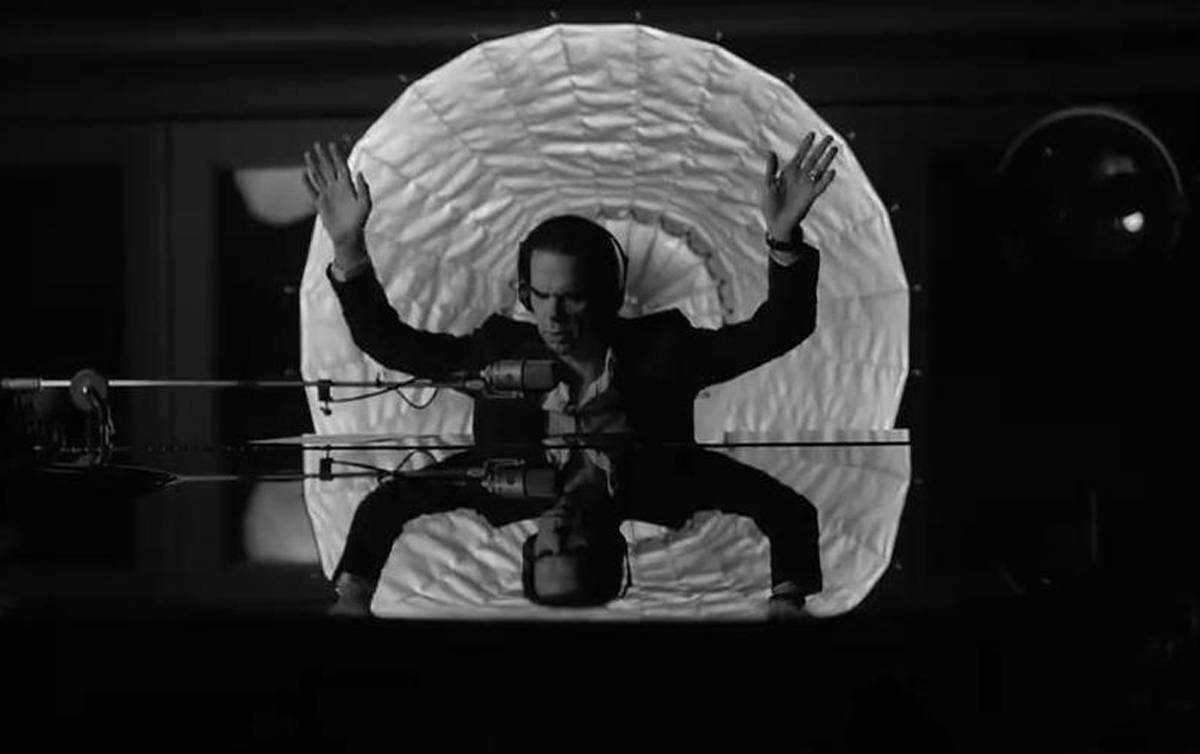 Album review: “Skeleton Tree” by Nick Cave & the Bad Seeds
Album review: “Skeleton Tree” by Nick Cave & the Bad Seeds
In this age of streaming, few people seem to listen to albums, those collections of songs that are meant to be listened to all together in a particular order. Albums are divvied up into their component tracks, which pop up randomly on “shuffle,” and few bother to worry about in what order the tracks were originally arranged. And to be fair, many albums do not seem to be made with any particular sequence in mind.
But there are those who still appreciate the finely arranged album, songs that build on a particular theme or instrumental component and leave the listener with a sense that an intelligence is behind the arrangement of the album. And though the individual tracks may be enjoyed as songs, they take on a greater meaning and power when heard as part of a larger work.
Nick Cave is one of those artists who structures his albums carefully and deliberately, rewarding the attentive listener with the development of ideas and sounds. His latest album, made with longtime collaborator and Bad Seeds member Warren Ellis, is best appreciated as a complete work, one meant to be listened to in its entirety. The entire album is less than 40 minutes, which makes it easy to digest, even for the easily distracted. And the impact of the final three songs on the album increases substantially when heard in sequence.
Adding to the meaning of “Skeleton Tree” is the fact that this is Cave’s first album since the death of his teenage son, who apparently ran off a cliff after experimenting with LSD for the first time. Cave has largely avoided publicity interviews for the album, preferring instead to collaborate on a documentary about the making of the album with director Andrew Dominik, titled “One More Time With Feeling.”
The album sets the mood from its first song, “Jesus Alone,” which combines eerie synthesizer tones and a droning background with Cave’s trademark speak-singing. Cave describes images such as “lambs burst[ing] through the wombs of their mothers,” while a chorus repeats the lines, “I am calling you / With my voice.” It’s an unsettling beginning and a very unnatural-sounding song. Most of the sounds here are processed or artificial. There is little warmth.
The mood, along with Cave’s recitation of imagery, continues with “Rings of Saturn” and “Girl in Amber,” which centers Cave’s penetrating voice right at the front of the mix. It’s a somber, reserved song with lines like “Don’t touch me” being delivered in a dry, desiccated voice. It sounds like resignation. In “Anthrocene,” a wordless chorus punctuates the background softly as Cave notes, “I hear you’ve been out there looking for something to set on fire.” The cumulative effect of the first half of the album is unsettling and cold. It’s not very inviting.
Fans of Nick Cave are used to these kinds of moods and even celebrate them. Think of earlier albums like “Murder Ballads,” or even the soundtrack music he created for the dystopic film,”The Road.” We’ve heard Cave’s dark music before.
But beginning with “I Need You,” the last three songs on the album mark a shift in tone, instrumentation, and theme. The dominant synthesizer sounds begin to be subdued by warm piano chords, and Cave’s voice undergoes a remarkable transformation. There are hints of trembling in his voice, and he sings here at an unusual range, as if he were hanging upside-down. “Nothing really matters when the world you love is gone,” he sings over wailing background vocals. It’s difficult to process the degree of raw emotion in Cave’s voice. I’ve never heard anything quite like it. “Just breathe / Just breathe / I need you,” the song continues, as if Cave were with us at the deathbed of a loved one.
“Distant Sky” further develops this mood, lifting the heaviness a bit with organ chords that sound like the beginning of a hymn. For the first time on the album, we hear a different voice, that of female singer Else Torp, who sounds remarkably like Kate Bush and does for Cave here what Bush did for Peter Gabriel in his song “Don’t Give Up.” The music is humanized, and warms the listener, a much needed reverie after “I Need You.” The singing here is rich and assured, completely unlike the anxiety-producing sounds of the previous songs. It’s the first hint of ease, and the effect is cathartic. “Soon the children will be rising,” we hear. “This is not for our eyes.”
By the time of the final song, the title track of the album, all we hear are natural, acoustic sounds: guitar, subdued piano, and a soft, insistent beat. It’s a complete reversal of the album’s harsh opening sounds, and we realize we have gone through all the cycles of grief in eight songs. “I called out across the ocean / The echo comes back empty,” Cave sings, and the last words, the last sounds we hear on the album, are from a female chorus whispering, “It’s all right now.”
Collectively, this is one of the most transformative albums I’ve ever heard. The emotional content alone would make it memorable, but the evolution of the music here is deliberately constructed and brilliantly conceived. This is a great work, a contender for best album of the year.
Articles related to “Album Review: With ‘Skeleton Tree,’ Nick Cave sings his grief, creates great album”
Album review: With “Schmilco,” Wilco repeats itself forgettably
Album Review: Many Miles’ debut album provides comfortable journey



